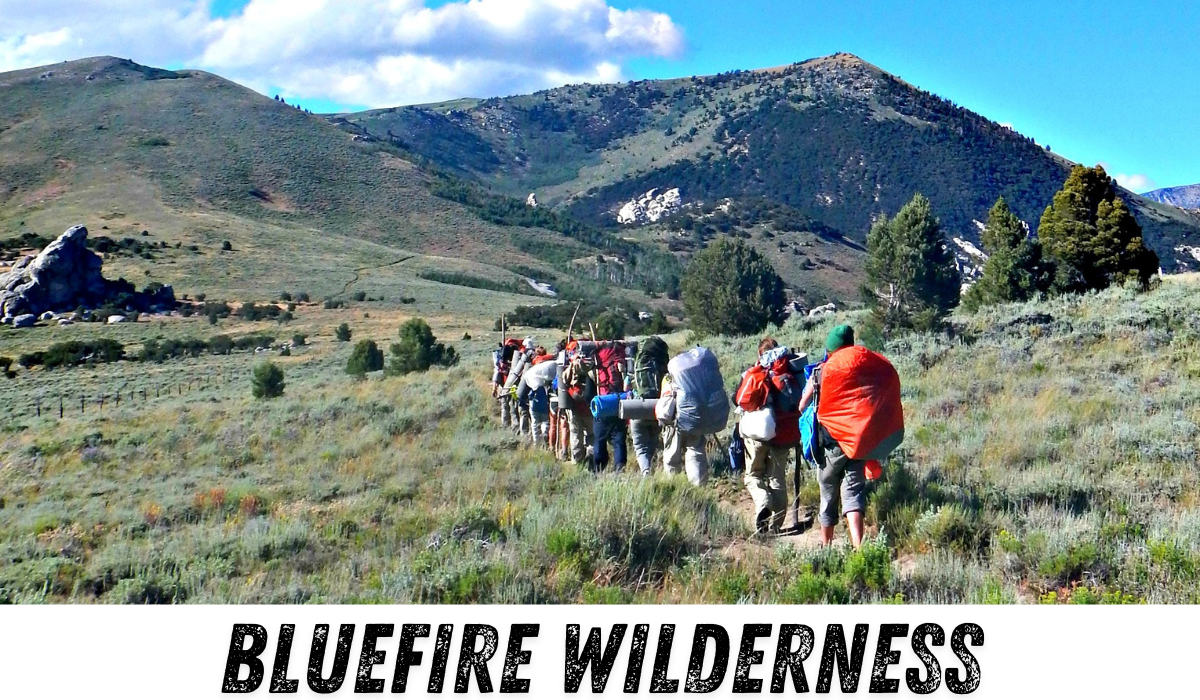Nowadays, life is swift. Many people want to find relief from the constant stress and anxiety that are on the increase by turning to nature. Nature, it is well known, can help to reduce anxiety symptoms and alleviate depression. This idea has led to the development of programmes like BlueFire Wilderness Therapy, based in Idaho, that use nature to address behavioural problems in problematic teenagers.
However, despite its claims for beneficial effects, BlueFire Wilderness Therapy and similar programs have faced criticisms. Many complaints have been made against them, while others are worried about their safety and efficacy, prompting some individuals to question if lawsuits have ever been filed against BlueFire Wilderness Therapy. This article will explore the controversies surrounding BlueFire, discuss the possible benefits of nature therapy, and probe where some organizations might cross dangerous borders.
The Promise of Wilderness Therapy
Wilderness therapy programs like those offered by BlueFire promise to transform troubled youth. Such packages typically last several months and claim personal development through maturity for all participants. Proponents argue that outdoor activities coupled with therapeutic interventions and group processes can enable young people to surmount behavioural challenges, cultivate resilience, build critical life skills, or enhance youth.
The Alleged Benefits of Nature Therapy
Spending time in natural surroundings has proven scientific advantages over mental health challenges. In a recent study published in the journal Nature Sustainability, daily engagement with nature reduced children’s chances of behavioural issues by 17% (Chawla & Cushing 2018). The authors connected this positive outcome with improved cognitive functioning and decreased stress levels among these kids.
It should be remembered, however, that this study defined time in nature as rest or play periods. On the other hand, wilderness therapy camps often involve more intense activities like hiking, camping and manual labouring (Rice 2014). These programs aren’t usually soothing; they may impose considerable physical and emotional demands upon participants.
Allegations of Abuse and Neglect
Wilderness therapy programs, however, have had several abuse allegations against them. There are former participants of programs like BlueFire Wilderness Therapy who recounted tales of unimaginable brutalities (Green 2012). As an example, one former attendee of Trails Carolina, which is situated in North Carolina, revealed on WBTV how, for seventeen days, he stayed without taking a shower, even after his faeces defecating his pants. Others stated being subjected to manual labour under very harsh weather conditions, enduring physical or sexual abuses, or carrying out intense exercise routines while undernourished.
The Lack of Transparency
Lack of transparency is one of the significant concerns about wilderness therapy programs. These camps’ websites often show only positive feedback from parents who have used their services (Kerns & Schultz 2014). For instance, BlueFire’s website shows only five-star ratings given by parents, none with a surname or any identification at all. This lack makes it hard for parents to evaluate the safety and success rates associated with such programs, and thus, making decisions becomes very difficult for them.
The Role Of Lawsuits In Raising Awareness
Although some websites suggest that lawsuits have been filed against BlueFire Wilderness Therapy, it is challenging to find strong evidence proving such claims. In the case of filing lawsuits against blueFire and other similar camps, it may help to focus on the matters of abuse and neglect prevalent in such programs. Lawsuits could help reduce the stigma surrounding mental health treatment and give parents a better understanding of where they can find safe and reliable resources for their children.
Merits of Filing Lawsuits
Filling lawsuits against wilderness therapy camps may bring about several positive outcomes:
More Awareness: Legal steps would gain national attention on issues within these institutions, making operations more difficult without scrutiny.
Improved Safety Standards: Legal actions might result in stricter guidelines and monitoring that guarantee safety for participants in these programs.
Mental Health Support: Initiating legal procedures is likely to encourage more families to access help through genuine licensed therapists and credible programs.
Evaluating Wilderness Therapy Success
Evaluating the success of wilderness therapy programs poses a challenge. There are three primary ways to assess their effectiveness: camp reviews, news articles about attendee experiences, and research studies.
Camp Reviews
Many wilderness therapy programs like blueFire feature overwhelmingly positive reviews on their websites. However, most such reviews lack transparency; many reviewers appeared anonymous or with no last names. This raises questions regarding the authenticity and reliability of testimonials brought forward therein.
News Articles
News articles allow former attendees who contradict the rosy reports on the websites to share their experiences. Some articles also highlight the tragic stories of individuals who died by suicide, homicide, or neglect while attending wilderness therapy camps. These accounts create an entirely different image of the facilities, raising serious doubts about their safety or whether they even work.
Research Studies
Research findings concerning wilderness therapy must be more consistent with previous studies’ findings. For instance, one study published under Criminal Justice & Behavior collected data from over 1,800 adolescents who attended wilderness therapy camps and their parents. The participants self-rated their behavioural differences before and after attending the camps, showing positive results. Nonetheless, the youths continued to dwell with their parents, who had sent them to such camps; thus, this might have affected their reactions.
Necessity for Change
If lawsuits against wilderness therapy facilities like blueFire are not frequent enough and thus do not receive national attention, they will continue operating with minimal oversight. Parents must understand the potential risks involved and instead consider alternative treatments that are based on evidence for their troubled teenagers.
Alternative Approaches
Parents looking for help for their children can consider several alternative approaches:
Licensed Therapists: A safe and controlled environment for dealing with behavioural problems among teenagers is offered by association with psychiatric specialists who work specifically with such age groups.
Outpatient Programs: These programs enable teens to stay connected to family members at home yet still receive organized support structures, which may require doctor’s orders.
Support Groups: Mutual-aid groups, including teens and parents, offer a sense of community identity and belonging and reduce feelings of seclusion.
Conclusion
The attraction of wilderness therapy programs such as BlueFire is their promise to change through nature. Although scientific evidence shows the positive mental health benefits of spending time in nature, these programs often do not live up to their promises.
Serious concerns have been raised about the safety and efficacy of wilderness therapy because of allegations of abuse and neglect combined with a lack of transparency.
Parents who are contemplating these programs should conduct extensive research, check independent reviews on them, and consider other treatment options. That way, they will ensure their children get the help they need within a safe environment where they can grow comfortably.
As more people take legal action against the companies involved in this malpractice, we can hope for a future where there is equal treatment for all mental health treatment programs. Until then, parents and guardians must be alert and well-informed when seeking assistance for adolescents with troubled minds.

